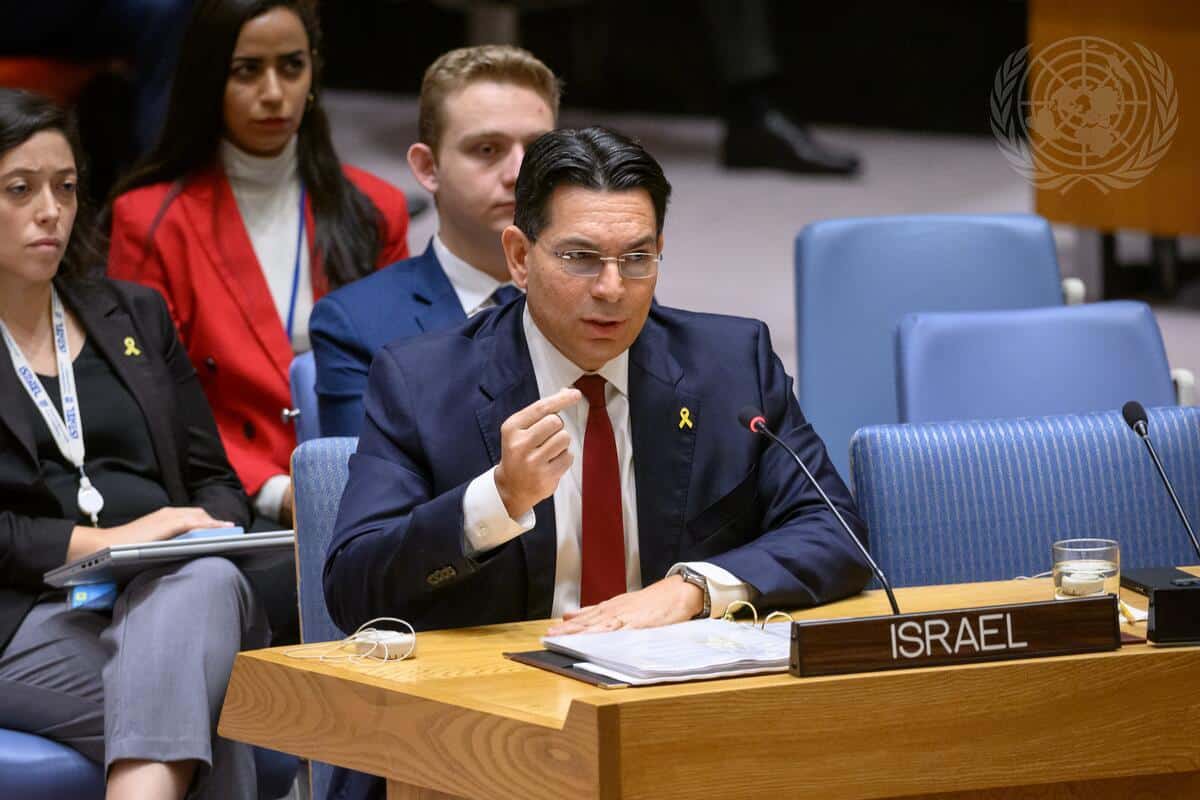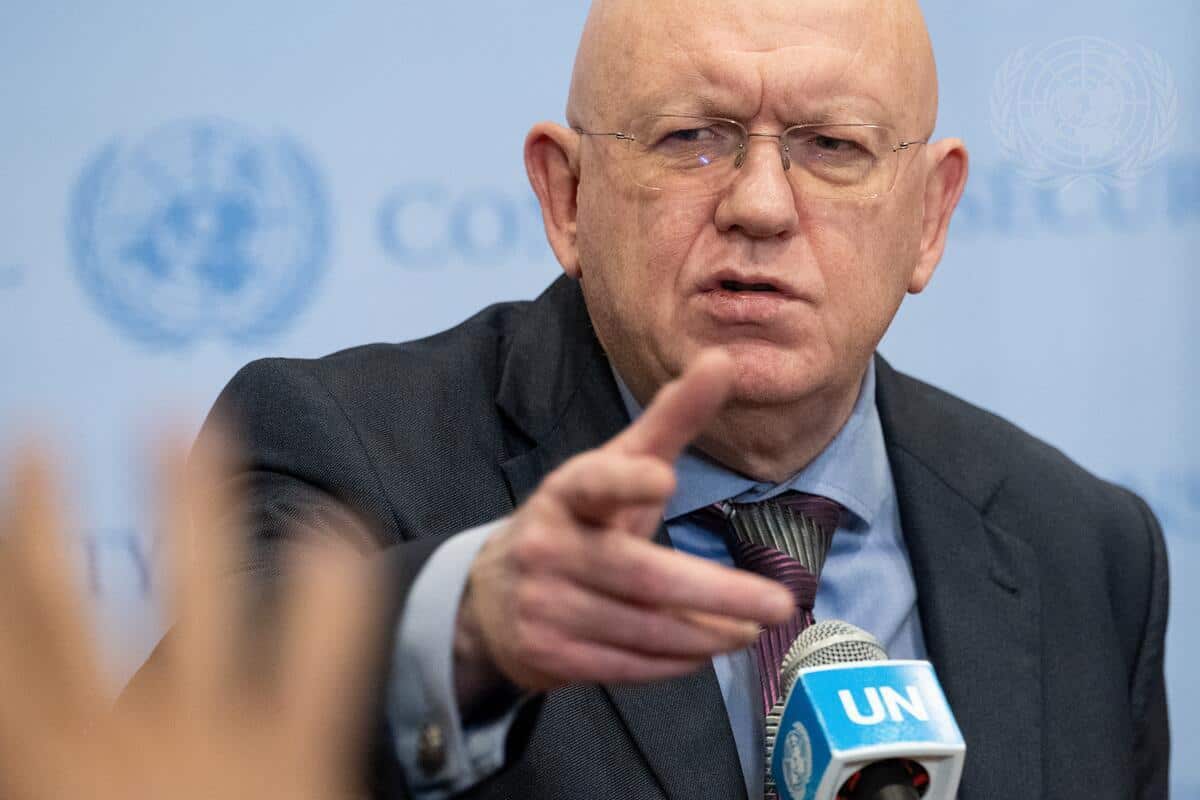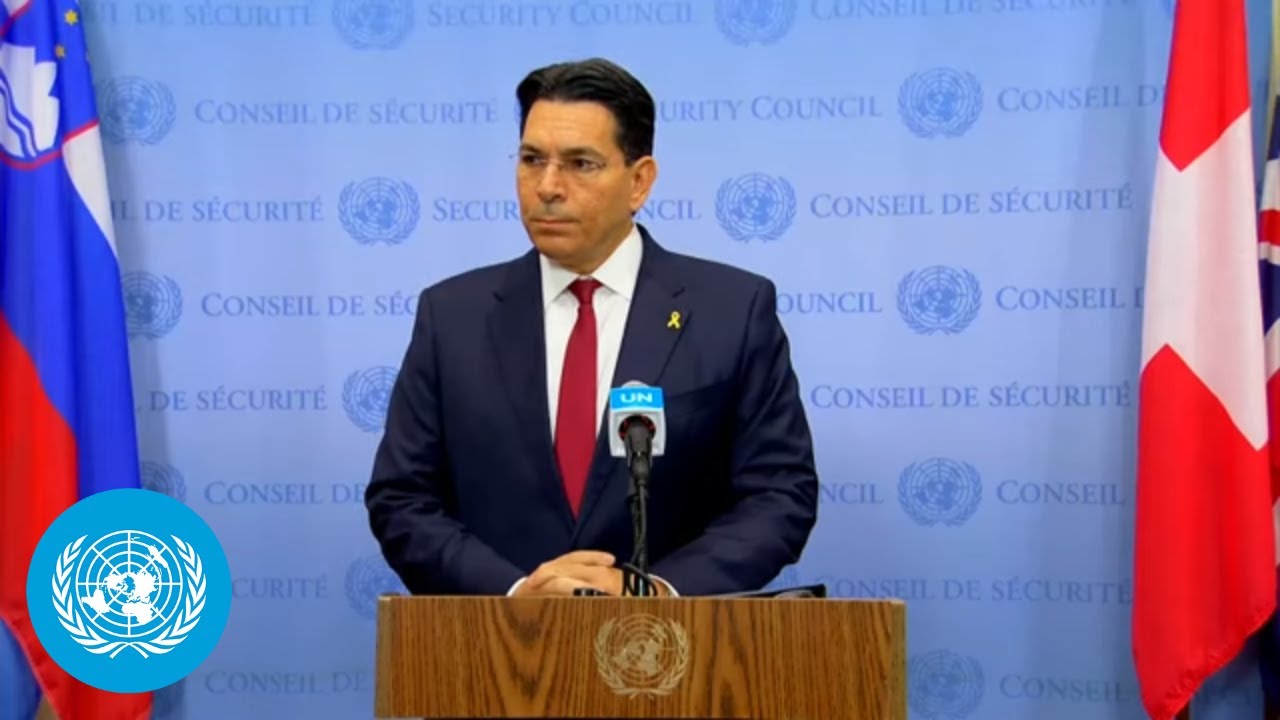Israeli Foreign Minister Israel Katz declared António Guterres, the U.N. secretary-general, persona non grata in the Jewish state on Wednesday morning, hours before Rosh Hashanah begins.
“Anyone who cannot unequivocally condemn Iran’s heinous attack on Israel, as almost every country in the world has done, does not deserve to step foot on Israeli soil,” Katz stated. “This is a secretary-general, who has yet to denounce the massacre and sexual atrocities committed by Hamas murderers on Oct. 7, nor has he led any efforts to declare them a terrorist organization.”
“Israel will continue to defend its citizens and uphold its national dignity, with or without António Guterres,” added Katz, referring to the secretary-general as “a stain on the history of the United Nations.”
Hours after Katz’s announcement, Guterres continued to blame the Jewish state for recent escalations in the Middle East and for being attacked in Iran’s ballistic missile barrage on Tuesday.
Addressing an emergency session of the U.N. Security Council on Wednesday morning, Guterres chastised Israel for balking at last week’s proposal by the United States and France, which called for a three-week ceasefire between Israel and Hezbollah.
“Israel refused that proposal and stepped up its strikes, including bombing the Hezbollah headquarters where its leader was killed,” Guterres said.
The secretary-general said that he issued warnings last week about growing tensions along the Israel-Lebanon border, but a JNS search of his public statements and social media accounts suggests that Guterres has barely mentioned Hezbollah as the terror group has launched some 9,000 rockets at Israel since Oct. 8, the day after Hamas’s massacre. When Guterres did mention Hezbollah, JNS found, it was in a statement that also blamed Israel.
Guterres shared Iran’s reasoning for its ballistic missile attack on Israel with attendees of the Wednesday meeting, which included Israeli, Lebanese, Iranian, Iraqi and Syrian representatives.
“It stated it was in response to the killings of Hassan Nasrallah and the Islamic Revolutionary Guards Corp commander Abbas Nilforoushan last week, as well as that of the Hamas leader Ismail Haniyeh in Tehran in July,” Guterres said.
He clarified a statement he issued on Tuesday, for which he was widely criticized, stating: “I condemn the broadening of the Middle East conflict with escalation after escalation. This must stop. We absolutely need a ceasefire.” At the Wednesday meeting, Guterres said that he condemned Iran’s attack.
Stéphane Dujarric, Guterres’s spokesman, told reporters on Wednesday afternoon that the United Nations regards Katz’s declaration “as a political statement by the foreign minister” that has no practical impact. Guterres can only come to Israel at the Jewish state’s invitation, which was unlikely anyway given the tension between the global body’s head and Israel.
“We continue our contacts with Israel at the operational level and other levels because we need to,” Dujarric said.
JNS asked Dujarric at the press conference about a lack of clarity in multiple Guterres statements about Israel, including his condemnation initially of Hamas’s Oct. 7 terror attack, which he followed by a lengthy attempt to justify the attack.
Dujarric told JNS that Guterres was clear at Wednesday’s Security Council meeting when he condemned Iran’s attack. The secretary-general’s statement on Tuesday was “within the context of what everybody knew and what the news was,” Dujarric said.

‘Flag still flies’
Guterres stated during Wednesday’s meeting that Israel had requested that U.N. Interim Force In Lebanon peacekeeping troops relocate within Southern Lebanon, ostensibly for their safety as Israel carries out ground operations to further degrade Hezbollah’s capabilities.
Guterres said that the “U.N. flag still flies” in UNIFIL’s area of operation, suggesting that the troops won’t heed Israel’s request.
JNS sought further clarification from Dujarric, who said that Jerusalem requested “UNIFIL to leave several positions near the Blue Line,” but the decision was made “operationally and politically to stay.”
Dujarric added that the United Nations “will continue to stay while at the same time assessing our posture and the security of the peacekeepers, I would say, on an hourly basis.”
Guterres also told the Security Council on Wednesday that “I wonder what remains of the framework” on Security Council Resolution 1701, which was passed in 2006 and was supposed to lead to the disarmament of the Lebanese Armed Forces and folding of Hezbollah. It was also meant to reestablish Lebanese government sovereignty in Southern Lebanon.
Asked on Wednesday which party to the resolution—Israel or Lebanon—ought to enforce it, given that Lebanon has not done so in 18 years, Dujarric said that “diplomacy takes time.”
“We want to see the gun silenced, and we want to see a return to diplomacy,” he said.
Danny Danon, the Israeli ambassador to the United Nations, told the Security Council that calls to “both sides” to stop escalating the conflict is “an absurd comparison between the one who causes destruction and the one who defends himself.”
The conflict between Israel and Iran “is a struggle between a sovereign state fighting for its right to exist and a regime that desires nothing but the destruction of Israel,” Danon said.
‘Significant escalation’
Linda Thomas-Greenfield, Washington’s U.N. ambassador, said in Wednesday’s Security Council meeting that Iran’s failure to kill Israelis on Tuesday “does not diminish the fact that this attack, intended to cause significant death and destruction, marked a significant escalation by Iran.”
“This is a moment for this council to speak out—with one voice—and condemn Iran for its unprovoked attack against another member state,” she said, “and equally important, to impose serious consequences on the IRGC for its actions.”
Thomas-Greenfield accused Iran of complicity in the Oct. 7 attacks by funding and training Hamas. She told the council that the United States warned Iran not to use the aftermath of the massacre to “risk propelling the region into a broader war.”
Iran’s military, the Islamic Revolutionary Guard Corps, “flagrantly and repeatedly ignored this warning” by enabling its terror proxies to inflict further damage and chaos, Thomas-Greenfield said.
She also pushed back on the U.N. secretary-general’s explanation. “The IRGC was acting in solidarity with Hezbollah” after last Friday’s killing of Hassan Nasrallah,the Hezbollah secretary-general, she said.
“I can think of no starker example of state support of terrorism than launching ballistic missiles to avenge the death of a terrorist leader,” the U.S. envoy added.

Vassily Nebenzia, the Russian ambassador to the global body, blamed the United States for supporting Israel. “As a result, the flames of the all-consuming conflict are spreading wider, engulfing more of Israel’s neighbors in the region,” he said.
A harsh critic of the U.S.-Israel alliance, Nebenzia said that “there is a vast and dangerous illusion that Israel will be able to remain unscathed in this growing fire.”


























